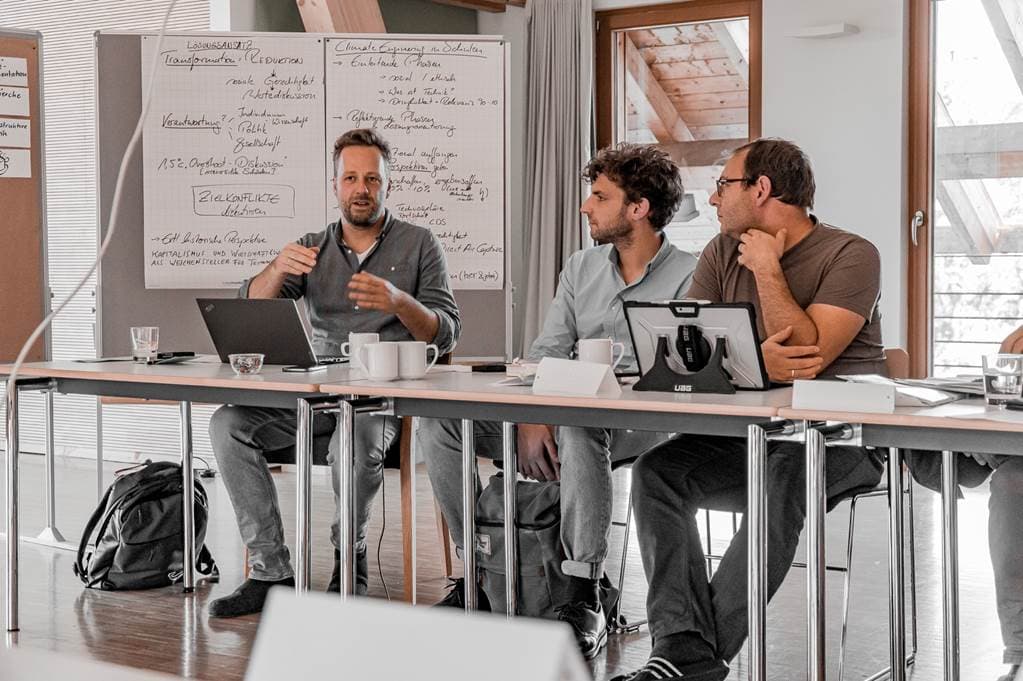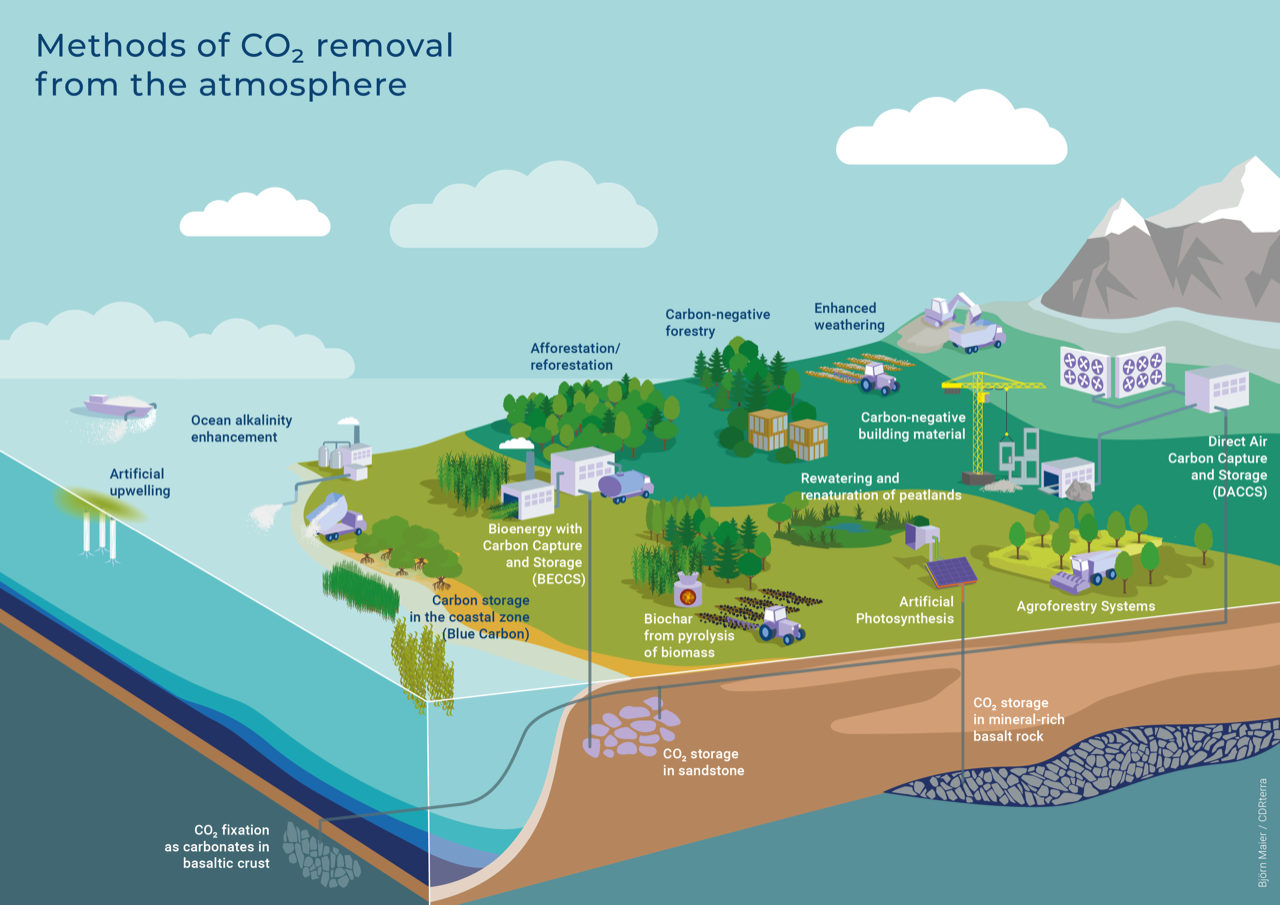First educational conference on CO₂ removal

Active removal of the greenhouse gas CO₂ from the atmosphere (CDR = Carbon Dioxide Removal) is considered necessary in climate research in order to be able to meet the 1.5 degree target. CDR measures can have different potentials, risks and impacts. The public and political debate on the use of CDR is therefore fraught with tension.
As with other issues central to climate protection, the complex interplay of advantages and disadvantages of the various solutions must be well understood, carefully weighed against each other, and reflected upon on the basis of ecological, economic, social, political, and ethical considerations. CDR should therefore become part of school education.
To achieve this, researchers and university didacticians at CDRterra have launched a nationwide educational conference on CO₂ removal. This will take place for the first time from October 10 to 11, 2023 at the Deutsches Museum in Munich. The motto: Developing perspectives, testing educational and mediation formats, designing lessons.
We want to consider together how we can prepare a thematically challenging, disciplinarily broad topic with high social significance for school education.
Participation in the conference is free of charge.
Please register here.
Who is the CDR Education Conference for?
- Researchers/lecturers at universities
- lecturers working in teacher education
- teachers, trainee teachers and student teachers as well as head teachers and lecturers
- Actors in school or non-school education
- Decision-makers in the field of education
The topic of CO₂-removal is relevant for subjects such as geography, chemistry, biology, physics, computer science, politics, ethics, history, economics and law, but also social studies as well as German and art lessons.

Your contact
Dr. Katrin Geneuss: CDRBildungskonferenz@geographie.uni-muenchen.de
Dr. Katrin Geneuss is head of the CDR education program. In an interview with the Ludwig-Maximilians-Universität (LMU) Munich, she explains why complex topics such as climate change and CO₂ removal are not yet sufficiently represented in the classroom and how this could be changed.